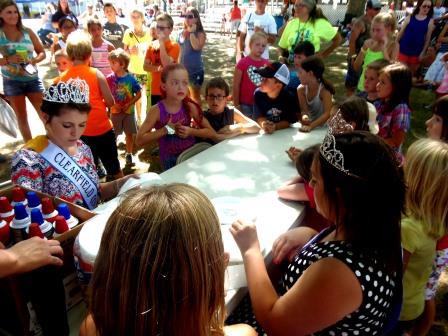A week after Khizr Khan speak emotionally and eloquently on his late son’s behalf at the Democratic National Convention, the fallen soldier’s memory continues to be honored by those who knew him well.
“He was the most incredible man to work for,” recalled Laci Walker, who served as a sergeant under Army Capt. Humayun Khan. “You always knew what he wanted.”
In June 2004 a suicide bombing in Baghdad cost Humayun Khan, 27, his life.
Walker, who had heard the explosion but was not on duty at the time, said she later found out that it was her close friend and “one of the most respected people in (her) life” who had been killed in the attack.
Now, more than a dozen years later, Khan’s name has been thrust into the national spotlight following comments by his father denouncing Donald Trump.
Walker suspects it’s attention her former commander would have shied away from.
“They say rest in peace for a reason,” Walker told CNN’s Brooke Baldwin Tuesday. “He was a soldier. He was a man. He died honorably. He didn’t die because he’s a Muslim.”
Before being deployed to Iraq, Walker recalled telling Khan, who she called “a comrade in arms,” that she would “not be able to do Iraq without (him).”
After Khan’s death, Walker had a dream where Khan approached her, telling her that he wasn’t going to leave her and that she should continue to live out his legacy in remembrance of him.
“I had a dream that he came to me and said..’I’m not gone. Just don’t forget me. I’ll always be here with you guys. Just don’t forget me,'” Walker told CNN’s Alisyn Camerota Wednesday morning.
Though Khan’s faith has become a large part of the political narrative in the days following his dad’s speech, Walker instead remembers the man who was always at the ready with an emergency meal when unrelenting duty led to grumbling stomachs.
“If we had to work through lunch, he’d always make us all tuna fish sandwiches. He was very kind, all the time,” she said.
Khan was such an inspirational leader to Walker that she got a tattoo of the word “unforgotten” in his honor. To Walker, Khan was a man who embodied patriotism and heroism, irrelevant of religion or ethnicity.
“He didn’t wear his heritage on his shoulder,” Walker told Baldwin. “He wore the American flag like all of us did.”



